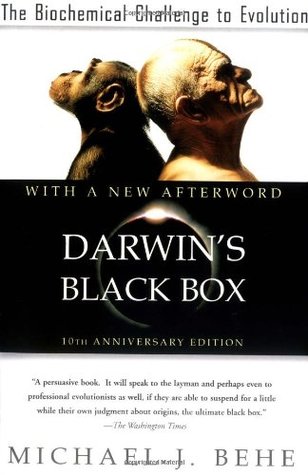In the Victorian era, High Churchmen castigated Darwin as a materialist who would reduce men to mere monkeys, and earnest materialists enunciated a vision of scientific progress that, as it were, only incidentally drained the universe of purpose.
Darwinian propaganda has been with us for 100 years, a mechanical explanation not only of the origins of life—as if that were not enough—but of the human mind, ideas, culture, ethics, and religion. Against these latter-day Huxleys a new champion has appeared: not an Anglican bishop like “Soapy Sam” Wilberforce, who took on T.R. Huxley in a famous Oxford debate, but a biochemist whose researches have convinced him that the reach of Darwinism does not extend to the most basic levels of nature.
Michael Behe is a professor of biochemistry at Lehigh University whose doubts about orthodox Darwinism have earned applause from those who oppose the Darwinian faith, and criticism from evolutionists who claim that his arguments are fraudulent. His reservations about Darwinism in Darwin’s Black Box are not based on creationism; they are more subtle and responsible. Behe believes that evolution did take place— that life evolved over several billion years from the most primitive to the most complex forms—but he does not believe that the Darwinian account can fully explain this process. Nor does he believe that acceptance of evolution implies materialism, reductionism, or a vision of the natural world devoid of design. Providence, or a Creator.
Behe’s book is well organized, presenting arguments in favor of an updated view that design is part of nature while refuting Darwinian propaganda poured forth by the likes of Daniel Bennett and Richard Dawkins. In the heart of the book, however, Behe highlights five biochemical processes so complex that they could not have evolved in the orthodox Darwinian manner, i.e., by a slow and gradual process culling newly mutated characteristics. For there is no functional use for the many elementary parts of these complexes, only for the finished product.
Among the examples that Behe presents are the formation of scabs on cuts and scrapes, which require not only a set of complex organic chemicals which interact to coagulate the blood but a separate protein complex that starts the process of coagulation when blood first escapes through the skin, and another which ends coagulation when the job is done. Obviously, there is no need in nature for a chemical process that ends scabbing unless all the prior processes are in place. Behe argues that these quantum leaps on the biochemical level cannot be explained by the orthodox Darwinian version of evolution by natural selection; rather there had to be a prior design present in nature to help these systems evolve.
Behe does not believe that evolution never took place, but that the motive force of evolution cannot have been the mechanical process postulated by Darwin. It is noteworthy that, although the Darwinian account of natural selection has never been proved true by empirical observation, it is treated by the ultraorthodox as if it were a well-established scientific law. Since this central dogma of the Darwinian view remains unproved, the orthodox must all the more firmly hold it as an article of scientific faith. It is the Darwinians with their untoward zeal to promote the mechanical vision who now manifest the bad manners of true believers, and who, as a matter of literal fact, describe their position as an “orthodoxy,” defined in terms of a “central dogma.” Behe’s arguments and his evidence of what goes on within Darwin’s black box may well have changed the terms of the debate for this generation.
[Darwin’s Black Box: The Biochemical Challenge to Evolution, by Michael J. Behe (New York: The Free Press) 307 pp., $25.00]

Leave a Reply